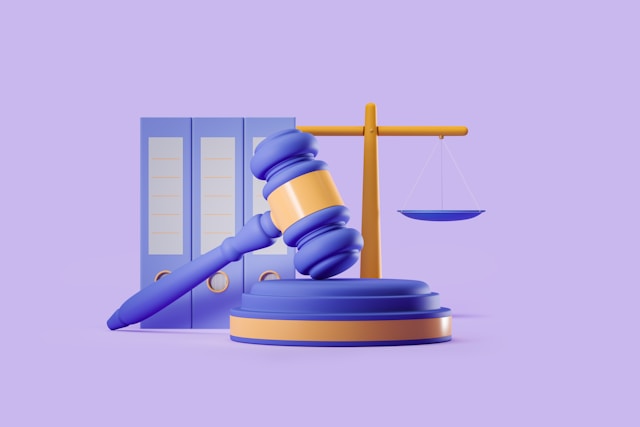Residential property management in Canada involves overseeing rental properties, handling tenant relationships, and ensuring that the properties are maintained in good condition. To ensure that these tasks are carried out efficiently and legally, there are several regulations that property managers and property management companies must adhere to.
The laws that govern property management in Canada vary from province-to-province
Yes, property management rules and regulations may differ slightly in different parts of Canada, as each province and territory has its own set of laws and regulations governing the real estate industry. It’s important for property managers to be aware of the specific regulations governing their province or territory, as failure to comply with these regulations can result in fines, suspension or revocation of their license, and legal action. It’s also important for property owners to work with property managers who are licensed and comply with the regulations governing their province or territory, to ensure the proper management of their properties.
Property Regulations
One of the most important regulations governing residential property management in Canada is the property regulations. These regulations cover the standards for the maintenance of properties, including building codes, zoning laws, and health and safety regulations.
Property managers must ensure that their properties meet all the required standards to avoid legal issues that could arise from negligence or non-compliance.
Property Management Regulations
Property management regulations specifically govern the activities of property managers and property management companies. They outline the responsibilities of property managers, the requirements for licensing, and the obligations of property management companies to their clients. The regulations ensure that property managers provide adequate services to property owners and that they comply with all legal requirements.
The Residential Tenancies Act (RTA) governs all residential tenancies in Ontario
The Residential Tenancies Act (RTA) governs all residential tenancies in Ontario. The RTA covers all residential tenancies, including tenants who rent from private landlords, social housing providers, and co-operative housing corporations.
The RTA does not cover commercial tenancies, but the Landlord and Tenant Board can make orders for both residential and commercial rental units.
The RTA applies to all residential tenancies, including tenants who rent from private landlords, social housing providers, and co-operative housing corporations.
Under provincial laws, landlords are responsible for providing safe and habitable rental units
Under provincial laws, landlords are responsible for providing safe and habitable rental units. They must meet certain standards when it comes to maintenance of the property, repairs and cleaning.
Landlords must provide a safe and habitable rental unit: Landlords must ensure that their rental properties meet all health standards established by law. This includes having clean water supply lines, adequate drainage systems, functional heating systems in cold weather climates (and air conditioning in hot weather climates), smoke detectors installed on every level or room of your home where people sleep or sleep each night (unless they’re sleeping outside), carbon monoxide detectors installed near bedrooms, and more.
Property Management Agreement Canada
A property management agreement is a legal contract between a property owner and a property manager that sets out the terms and conditions of the management agreement. In Canada, property management agreements must comply with the laws and regulations governing the real estate industry in the relevant province or territory. The agreement should outline the scope of services provided, the responsibilities of the property manager, the fees and charges, and the terms and conditions of the agreement.
Property regulations in Canada are governed by the provinces and territories. These regulations are designed to ensure that properties are managed safely and effectively. They cover a wide range of topics, including zoning, building codes, health and safety regulations, and environmental regulations. Property managers must be aware of the regulations in their province or territory and ensure that they comply with them. Failure to comply with these regulations can result in fines and legal action.
FAQ’s
- What is the Residential Tenancies Act (RTA)?
The Residential Tenancies Act (RTA) is a set of laws that govern the relationship between landlords and tenants in Canada. It provides a framework for the rights and responsibilities of both parties and regulates the terms and conditions of residential tenancy agreements.
- What does the RTA cover?
The RTA covers various aspects of residential tenancy, including the rights and obligations of landlords and tenants, the terms and conditions of tenancy agreements, rent increases and deposits, maintenance and repairs, evictions and termination of tenancy, and dispute resolution.
- What are the landlord’s obligations under the RTA?
Under the RTA, landlords are obligated to provide tenants with a safe and habitable living environment, maintain the premises in a good state of repair, respect tenants’ privacy rights, comply with rent increase guidelines, and follow the proper procedures for eviction and termination of tenancy.
- What are the tenant’s rights under the RTA?
Tenants have several rights under the RTA, including the right to quiet enjoyment of the premises, the right to receive notice of rent increases, the right to a safe and habitable living environment, the right to have repairs made promptly, the right to privacy, and the right to dispute resolution.
- Are there any exceptions to the RTA?
There are some exceptions to the RTA, such as tenancies in social housing, student housing, and care homes. Additionally, some provinces may have their own tenancy laws that differ from the RTA.
- What is the process for evicting a tenant under the RTA?
The process for evicting a tenant under the RTA typically involves providing the tenant with notice of eviction, filing an application for eviction with the relevant authority, attending a hearing to present evidence, and obtaining an eviction order if the case is decided in the landlord’s favor. However, the specific procedures may vary depending on the province or territory.





